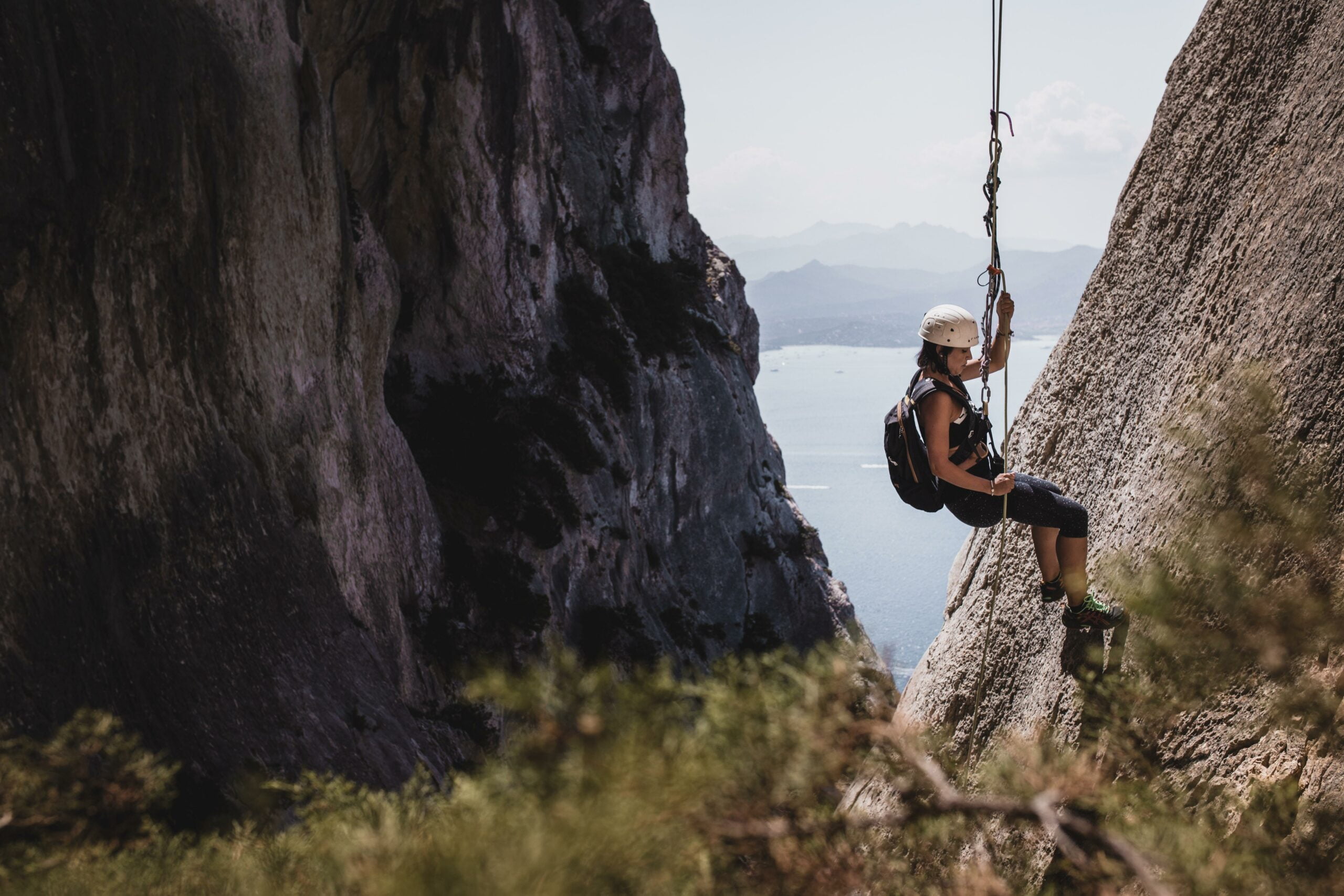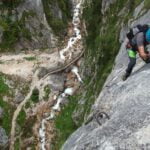Are you ready to take your fitness and wellness to new heights? Look no further than the exhilarating world of rock climbing. In this ultimate guide, we’ll uncover the numerous benefits that rock climbing offers to enhance both your mental and physical well-being. From building strength and agility to boosting confidence and reducing stress, rock climbing is much more than a thrilling adventure sport. So grab your harness and chalk bag, because we’re about to dive into the incredible world of rock climbing and discover how it can transform your life.

Benefits Of Rock Climbing
Rock climbing is more than just a thrilling adventure – it offers a multitude of benefits for both your mind and body. Whether you’re scaling vertical cliffs or conquering boulders, this exhilarating activity challenges your physical abilities while simultaneously providing a mental escape. Let’s take a closer look at the incredible benefits that rock climbing can bring to your life.
Physical Fitness: A Full-Body Workout
One of the most obvious benefits of rock climbing is the improvement of your physical fitness. As you navigate the various routes, your body engages in a full-body workout that targets different muscle groups. The constant movement and use of your arms, legs, and core muscles create a challenging and effective exercise routine. With regular practice, you’ll notice an increase in your cardiorespiratory fitness, strength, endurance, and muscle mass.
“Rock climbing isn’t just a fun activity – it’s a full-body workout that will push your limits and transform your physique.”
Enhanced Mental Abilities
Beyond the physical improvements, rock climbing also provides a host of mental benefits. The concentration, critical thinking, and problem-solving skills required to navigate the climbing routes can significantly enhance your cognitive abilities. As you maneuver through various challenging situations, you’ll develop quick decision-making skills and improve your memory. Moreover, the constantly changing and unpredictable nature of climbing creates an environment that stimulates creativity and fosters adaptability.
“Rock climbing isn’t just a test of physical strength – it challenges your mind and expands your mental capabilities.”
Boosted Confidence and Self-Esteem
Rock climbing has a remarkable ability to boost your confidence and self-esteem. Conquering difficult routes and pushing your limits can be incredibly empowering. With each successful climb, you’ll gain a sense of accomplishment and feel a surge of self-confidence. Additionally, overcoming fear and managing risk on the climbing wall can translate into increased self-assurance and resilience in other areas of your life.
“Scaling new heights and surpassing your own expectations will help you build unshakable confidence and ignite your self-belief.”
Creating Connections and Building Community
Rock climbing is not just an individual pursuit – it’s also a fantastic way to connect with like-minded individuals and build a supportive community. Whether you join a climbing gym or venture out to outdoor climbing spots, you’ll find a tight-knit community of climbers who are passionate about the sport. The shared experiences, challenges, and triumphs create strong bonds and lasting friendships. It’s an activity that brings people together, fostering a sense of belonging and support.
“Rock climbing is more than just a sport – it’s a gateway to a vibrant community that shares a common love for adventure and pushes each other to reach new heights.”
Escaping Into Nature and Exploring New Environments
One of the unique aspects of rock climbing is the opportunity to explore new places and immerse yourself in nature. Whether you’re climbing a picturesque mountain or navigating canyons, the outdoor settings provide a sense of tranquility and rejuvenation. Being surrounded by the grandeur of nature offers a break from the hustle and bustle of daily life and provides an opportunity to disconnect from technology and reconnect with the natural world.
“Rock climbing gives you a chance to leave behind the chaos of city life and immerse yourself in the awe-inspiring beauty of nature.”
Improving Mental Health and Wellness
Beyond the physical and social benefits, rock climbing has a profound impact on mental health and overall well-being. Engaging in physical activity releases endorphins, which can help combat feelings of depression and reduce stress levels. Studies have shown that rock climbing can serve as effective psychotherapy for adults with depression, providing a unique combination of physical challenges and mental stimulation. Additionally, the focus required while climbing helps alleviate symptoms of anxiety and can improve overall mental health.
“Rock climbing isn’t just good for your body – it’s a powerful tool to improve your mental health and find balance in today’s fast-paced world.”
Weight Loss and Increased Fitness Levels
If you’re looking to shed a few pounds or improve your overall fitness, rock climbing might be the perfect activity for you. The continuous movement and metabolic demands burn a significant amount of calories, making it an effective and enjoyable way to lose weight. Additionally, the diversity in climbing routes allows you to tailor your workout to your fitness level, ensuring that you’re constantly challenged and seeing progress.
“Ready to get fit and lose weight? Strap on your climbing shoes and let the walls be your guide to a healthier, fitter you.”
Conclusion
Rock climbing is an engaging and challenging activity that offers a wide range of physical, mental, and social advantages. From improving your physical fitness and mental abilities to boosting your confidence and building a supportive community, the benefits of rock climbing are undeniable. So, whether you’re a seasoned climber or a beginner looking to embark on a thrilling adventure, take a leap of faith and discover the transformative power of rock climbing.
“Challenge your body, ignite your mind, and conquer new heights – rock climbing is the ultimate path to enhancing your mental and physical wellness.”
Rock climbing is an exhilarating and challenging sport that pushes your physical and mental boundaries. If you’re curious about the facts surrounding this daring activity, you’re in the right place! We’ve compiled a list of interesting facts about rock climbing that will leave you in awe. From the highest peaks to the most difficult routes, there’s so much to discover. So go ahead, click here to uncover all the intriguing facts about rock climbing: facts about rock climbing.
Benefits Of Rock Climbing
Are you looking for an exhilarating way to improve your physical fitness and mental well-being? Look no further than rock climbing! This thrilling activity offers a wide range of health benefits that will leave you feeling stronger, happier, and more energized. From the physical standpoint, rock climbing provides a full-body workout that targets your muscles, helps improve cardiovascular endurance, and enhances flexibility. But the advantages go beyond just physical gains. Did you know that rock climbing has numerous mental benefits too? It has been shown to increase focus, boost problem-solving skills, reduce stress, and boost self-confidence. If you want to learn more about the rock climbing health benefits, click here for an in-depth look at the positive impact it can have on your well-being. Additionally, if you’re interested in discovering how rock climbing can benefit your mental health, click here to explore the various ways this thrilling activity can improve your overall mental well-being. So don’t miss out on the incredible advantages that rock climbing has to offer – click the links and embark on a journey towards a healthier and more fulfilling life.
What Happens to Your Body When You Climb: The Fascinating Science Behind Rock Climbing
[youtube v=”qNYHXslSpDU”]
The Physical Demands of Climbing
Rock climbing is not just a thrilling adventure sport; it’s a full-body workout that targets various muscle groups and significantly improves cardiorespiratory fitness, strength, endurance, and muscle mass. As we delve into the world of rock climbing with Shauna Coxsey, a multiple gold medal World Cup winner and double world champion boulderer, we uncover the incredible physical demands her body goes through and the intense muscle strength required for her success.
The Role of Finger Strength
One might think that finger strength comes solely from the fingers themselves, but it’s actually the flexor muscles in the forearm that power the fingers. These muscles pull tendons that run up the arm to each finger, and bands of ligaments called pulleys hold the tendons tight against the finger bones. This lever and pulley system allows climbers to lift their entire bodyweight using their fingers, making finger and forearm strength crucial to a climber’s success.
“Incredible finger strength is essential for us climbers. At the end of the day, we just want to get on the wall, climb up, and keep our fingers healthy for that,” says Shauna.
The Role of Skin and Grip
Without proper grip, climbing would be impossible. Interestingly, the way each individual’s skin affects their grip can vary. Thin skin may lead to slippery holds and more sweat, while thick skin can create a glassy surface where it becomes challenging to maintain a grip. To enhance grip and reduce moisture, climbers use chalk on their hands. The drier the skin, the better the grip. Shauna explains, “We use chalk on our hands to take away the moisture. The drier your skin can be, the better grip you’re gonna have.”
The Impact on Brain and Visual Perception
Climbing goes beyond physical strength; it also challenges the brain. Elite climbers like Shauna develop a phenomenon known as the “quiet eye,” which is a heightened visual perception that enables athletes to focus intensely and block out distractions. With tight holds and considerable distances between them, climbers require acute focus and concentration to execute precise movements. Shauna gives us an example, “You have to get from this volume with a good hold over to that volume with another good hold, but there’s a big distance between them, so that’s going to be quite a committing and wild move.”
The Importance of Different Muscle Fibers
Within our bodies, there are two types of muscle fibers: fast-twitch and slow-twitch. When climbing, efficiency becomes key. Slow-twitch muscles, which rely on oxygen from the blood, are essential for endurance climbing. However, constantly gripping tightly hampers blood supply, leading to swollen arms and a phenomenon known as the forearm pump. Shauna explains, “The dreaded forearm pump is actually a pain. It’s very uncomfortable, and it doesn’t just disappear when you let go. It stays for quite a while after.”
The Role of Core Strength
As climbers progress to more overhanging sections of the wall, core strength becomes crucial. While fingers and arms provide the power to stay on the wall, it is the legs and buttocks that are the body’s strongest muscles. These muscles help climbers maintain balance, prevent swinging, and provide stability. Shauna emphasizes the importance of core strength, saying, “Your legs and your bum are your strongest muscles in your body, so that kind of partially eliminates more overhanging the climbing wall gaps.”
The Mental and Emotional Rewards
While climbing presents immense physical challenges, it also offers numerous mental and emotional rewards. Climbing requires focused concentration, critical thinking, problem-solving, decision-making, and adaptability skills. Pushing one’s limits and conquering difficult routes boosts confidence and self-esteem. Additionally, being part of a supportive climbing community creates a sense of belonging and support. Shauna describes the satisfaction of pushing oneself, stating, “When you push to that extent, it’s quite rewarding because you know you’ve given everything. You’ve really pushed, and it’s quite a satisfying feeling.”
The Overall Impact of Climbing
In conclusion, rock climbing is a unique sport that provides a myriad of benefits. Physically, it offers a comprehensive workout, targeting various muscle groups, improving fitness levels, and aiding in weight loss. Mentally, it enhances concentration, problem-solving abilities, creativity, and memory. Furthermore, the sense of achievement and camaraderie within the climbing community promotes mental well-being.
Shauna Coxsey’s journey as an accomplished climber demonstrates how training, dedication, and focus can push the human body beyond its perceived limits. Whether it’s the incredible finger strength, the role of skin and grip, the brain’s visual perception, the different muscle fibers, or the mental and emotional rewards, rock climbing has a profound impact on both the body and mind.
So, are you ready to embark on your own climbing adventure? Lace up your shoes, chalk up your hands, and let the thrill of rock climbing take you to new heights!
“Rock climbing is not just about conquering routes; it’s a journey that pushes your body and mind beyond limits.”
FAQ
Q: What are the physical benefits of rock climbing?
A: Rock climbing offers numerous physical benefits including increased cardiorespiratory fitness, strength, endurance, and muscle mass. It also improves flexibility, balance, and coordination.
Q: What are the mental benefits of rock climbing?
A: Rock climbing enhances memory, problem-solving, and communication skills. It boosts confidence, self-esteem, and trust. Additionally, it offers mental challenges and fosters a sense of community, promoting overall mental well-being.
Q: Can rock climbing help combat depression and stress?
A: Yes, rock climbing has been shown to successfully serve as psychotherapy for adults with depression. It provides an engaging and challenging activity that can alleviate symptoms of mental health problems. Additionally, the sense of community and the therapeutic effects of climbing contribute to reducing stress and improving mental well-being.
Q: Is rock climbing beneficial for cardiovascular health and overall fitness?
A: Absolutely! Rock climbing improves cardiovascular health, increases grip strength, and enhances upper-body strength. It offers a full-body workout that can be tailored to different fitness levels, making it a great activity for improving overall fitness.
Q: Are there any studies supporting the benefits of rock climbing?
A: Yes, scientific research has shown that rock climbing has numerous physical, mental, and social advantages. These studies demonstrate the positive impact of rock climbing on physical health, mental well-being, and community engagement.
- Unlock Elemental 2 Secrets: Actionable Insights Now - April 2, 2025
- Lot’s Wife’s Name: Unveiling the Mystery of Sodom’s Fall - April 2, 2025
- Photocell Sensors: A Complete Guide for Selection and Implementation - April 2, 2025
















